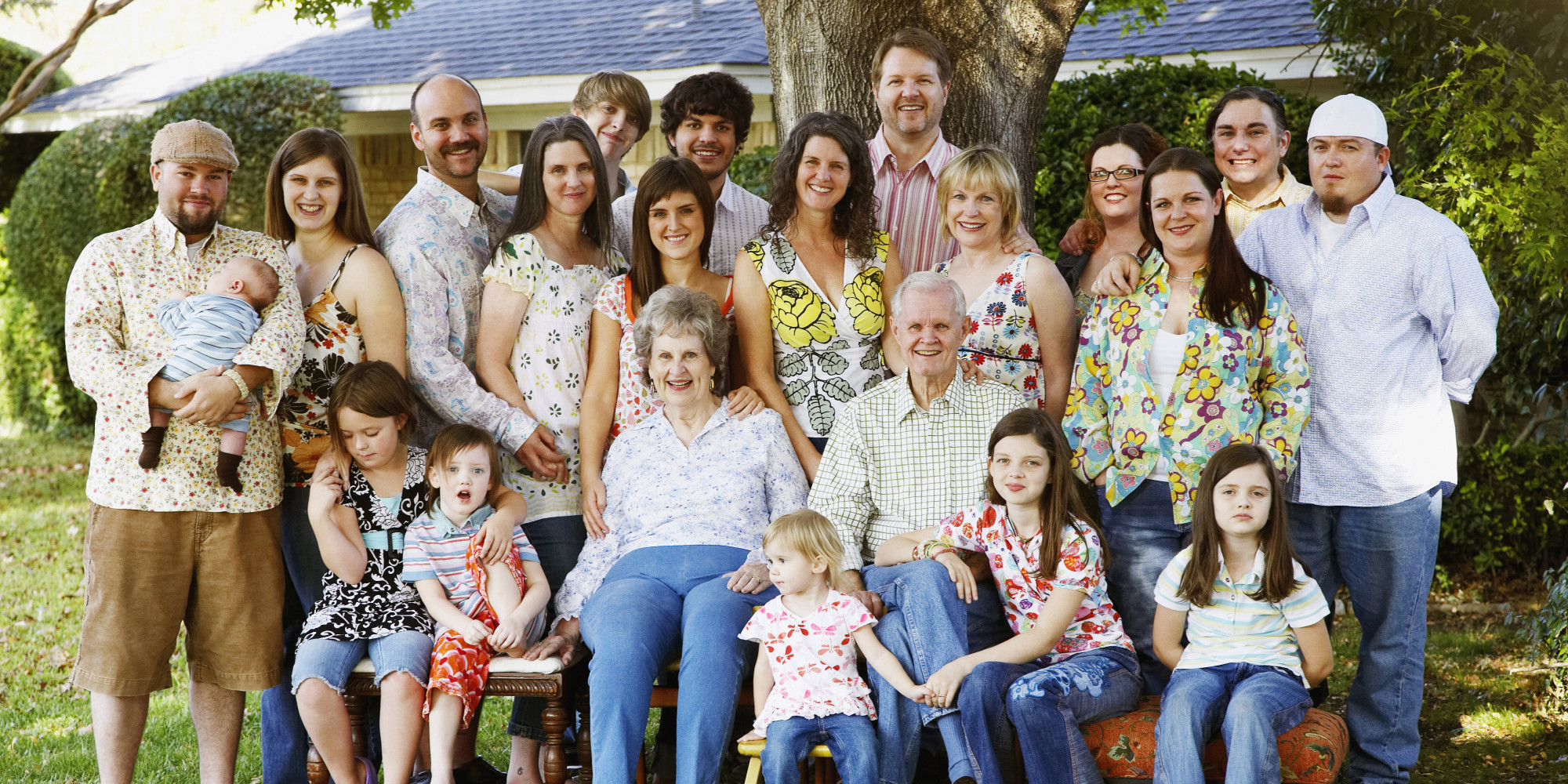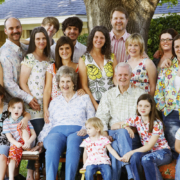NHS crisis – the role of the extended family
 Discontent with the current state of the NHS, and in particular with its funding, has rumbled on with marches at the weekend; yet more proposals for a ‘hypothecated NHS tax’ to raise funds (and the counter arguments); pledges that more is being given than ever before, and even tweets from Donald Trump claiming that the NHS is a collapsing system!
Discontent with the current state of the NHS, and in particular with its funding, has rumbled on with marches at the weekend; yet more proposals for a ‘hypothecated NHS tax’ to raise funds (and the counter arguments); pledges that more is being given than ever before, and even tweets from Donald Trump claiming that the NHS is a collapsing system!
Before the 2015 General Election, Simon Stevens, head of NHS England, had called for a minimum £30 billion extra funding by 2020/2021 to just maintain services at the current level. With cost savings, this was still going to come in at an extra £8 billion. The reality is that even this was almost certainly an under estimate, and the Kings Fund now reckon the actual increase in funding offered by the government really only came to an extra £4.6 billion
Calls for a rethink of not just how we fund the NHS, but how we run it have been around for years. It just feels even more acute at the start of 2018 than on previous occasions.
Currently, the British National Health Service has a very high ranking for efficiency and end of life care, but a much lower ranking for patient outcomes. While the NHS has many areas where it needs to improve, overall it is still rated as one of the top five health systems on earth.
Which rather leaves one to wonder in just what kind of state are the other health systems of the world? It also leaves me asking why British politicians are looking abroad for answers to what ails the NHS? In fact, since 2013, the British Government has been trying to export the NHS model of care worldwide, especially into Asia and the Middle East.
However, the NHS is definitely struggling – we hear this at CMF regularly from our members at all levels and in all branches of the system. Something needs to change for the sake of the health and wellbeing of our nation.
There are a number of directions we could take NHS funding, and Howard Lyons has written a detailed and thoughtful account of these in CMF’s journal Triple Helix. We could follow the social insurance system of France and Germany (which seems to work quite well, but overall not much better than the central tax model of NHS); or a localised tax and funding arrangement such as one finds in Denmark and other parts of Scandinavia (whose healthcare systems often fare much better than ours); or we could rely more and more on private insurance, as is the case in the US or much of the Middle East, with the state just running a health system for those who cannot afford to buy it.
By and large there is no real taste for (indeed, active opposition to) the latter option, and the British political system likes to run things from the centre, so the Scandinavian local tax system is probably not going to be popular here either. The move to a centralised social insurance system also has few fans politically in the UK.
However, it is not just that the funding of the system is in crisis. Another, even more basic issue is how health services actually function I would argue that one long standing problem is that we have seen health in separate category to social welfare, social care, schooling and childcare. In Catholic and Protestant Europe of past ages, these social needs tended to be under one umbrella, usually a joint venture between the state the church and the family.
Granted, 6th century Alexandria or 16th century Geneva are very different societies to our own – the state was smaller, ruling a smaller community and with significantly fewer responsibilities than today. The church was bigger – in Calvin’s Geneva, church membership was pretty much compulsory! Medicine was very limited, and for many ailments the best that could be offered was good nursing care and prayer. Finally, the family was the centre of social support and care networks – the state had next to no role, and the church just picked up those without family to care for them.
Thankfully today we can deal with complex medical needs incredibly well and we have a good social welfare infrastructure, and the State has a key role in coordinating all of this. Sadly, we also have more family breakdown, more social isolation, especially among the elderly. In fact, loneliness in modern Britain is such a serious problem (and a significant contributory factor in many physical and mental health needs) that the government has just appointed MP Tracey Crouch as the first Minister for Loneliness!
There is such a wealth of evidence for the role of stable families in physical, mental and social health and wellbeing that it continues to beggar belief that no government has really bitten the bullet and seen major policy shifts to support families. There are many of proposals for progressive policies that could make a real impact, but they remain politically unpopular. Not because the vast majority of the British public oppose them – quite the opposite, as David Goodheart suggests in his recent book Road to Somewhere. The problem is, as he sees it, that the ruling elite have developed a distaste for family friendly policies – it runs against the academic climate in which they were raised where the family was seen as the source rather than the solution to social ills.
Most of the population do not share those beliefs. Instead they have seen policies that have weakened the ties of marriage and family life among the poorer sections of society. Marriage in modern Britain has become mostly a middle-class institution, accruing its benefits to those who already have money and education on their side. Weaker families lead to more health and social problems across society – with recent estimates suggesting the economic costs to the UK taxpayer alone are around $51 billion a year.
Policies that support marriage and family life, intergenerational households and family friendly working practices could have a real impact – not just in keeping families together, but in increasing the prosperity and wider cohesion of families. While the state cannot make a failing marriage work or force people into inter-generational households, it can do a lot to make it easier for families to stay and live together. Many are arguing that current policies are having the opposite effect.
Whatever funding model we settle on for the long term, we need prosperous families to contribute to the taxation or insurance system we use. If we want to reduce the backlog of elderly people in hospitals needing social care to be discharged, we need families that have the capacity and the space to care for them – why do we build so many small homes for couples and for one or two children, rather than larger houses that suit inter-generational families?
Some families will fail, despite the best efforts of governments and other institutions. We will continue to need a welfare system to pick up those subsequently left behind, but we need to fund it properly, so that those providing the care are properly rewarded for the socially vital task that they are undertaking.
Adolescents, even in the most caring families, will face mental health problems that need professional interventions. In fact child and adolescent mental illnesses are a growing problem in western societies. So, we need properly accessible and well-resourced child and adolescent mental health services, not the current barely functioning service that is failing our children and teenagers despite the best efforts of the massively overstretched professionals.
But healthy, stable, secure families, especially in poorer communities will reduce the need for such services.
In the Bible the family is the centre of the community – the bet ab – literally the ‘father’s house’ or the household. Not a nuclear family, but an extended family of children, their spouses, grandchildren and grandparents, guests, strangers, foreigners. All sharing life together, caring for one another and for the vulnerable in the wider society. With no welfare or formal schooling, everything happened in and around the household. In Calvin’s Geneva, it was the family that was held responsible for the needs of their vulnerable members, the church and state only stepping in when they failed or were not present.
And while the primary purpose of the church is to bring God’s people together to praise their Creator, learn to live the life of Christ together and to proclaim the gospel, it also has a key role in living that life out through supporting caring for one another and the wider community.
While the family and the church cannot solve all of society’s ills, they must be a part of the solution.











Leave a Reply
Want to join the discussion?Feel free to contribute!